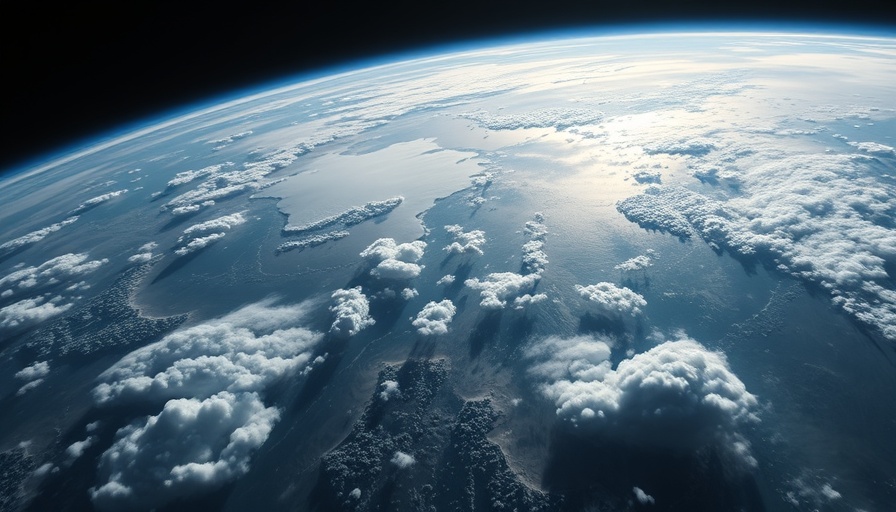
Revolutionizing Our Understanding of Life's Origins
For decades, scientists have posited that the emergence of intelligent life on Earth was a rare event—a product of improbable evolutionary milestones. However, a groundbreaking study by researchers at Pennsylvania State University suggests an entirely different narrative: humanity's existence may actually be a natural outcome of planetary evolution, one that could be replicated on other Earth-like planets. This new perspective challenges the longstanding 'hard steps' theory, which argued that the complex nature of intelligent life was merely a consequence of a sequence of rare events.
From Improbability to Natural Process
The 'hard steps' model, articulated by theoretical physicist Brandon Carter in 1983, hinged on the idea that the timeline for human evolution was astronomically unlikely compared to the lifespan of the Sun. Researchers, however, are now refuting this model by asserting that the Earth's ever-changing environment paved numerous pathways for life. According to Dan Mills, the lead author of the study, "we're arguing that intelligent life may not require a series of lucky breaks to exist." Instead, with favorable environmental conditions in place, complex life forms could emerge as a predictable result of evolution.
Windows of Habitability: Key Conditions for Life
What does it mean to say that evolution is contingent upon certain 'windows of habitability'? This new research emphasizes the importance of Earth's unique environmental conditions throughout its history. Changes in atmospheric oxygen levels, nutrient availability in oceans, and other critical factors opened up opportunities for increasingly complex life forms to thrive. As Professor Jason Wright from Penn State aptly put it, "if life evolves with the planet, then it will evolve on a planetary time scale at a planetary pace." This reveals that the evolution of intelligent life is less about chance and more about the complex interplay between organisms and their environments.
Implications for Life Beyond Earth
The implications of this study are profound, suggesting that the conditions for life may be far more common in the universe than previously thought. Instead of viewing the emergence of intelligent beings as an unlikely twist of fate, this new model proposes that similar evolutionary steps could be happening on exoplanets throughout the galaxy. As we search for biosignatures in distant atmospheres, like those of Earth-like planets, scientists are optimistic about discovering life forms that mirror our own.
A Paradigm Shift in Astrobiology
This shift in understanding not only affects how researchers approach astrobiology but also reshapes the narrative of humanity's role in the universe. Rather than seeing ourselves as a rare anomaly, we may instead be a testament to the potential for intelligent life. The researchers' ambitions are clear: by re-evaluating the conditions and steps necessary for life, they aim to broaden the search for extraterrestrial intelligence in a universe filled with opportunities for evolution.
Exploring Life’s Infinite Possibilities
If the emergence of complex life is not a matter of extraordinary luck, but rather a function of the right conditions over time, what might this mean for our understanding of existence? The study encourages a sense of hope and wonder, as we delve deeper into the cosmos in search of others like us. The evolving interplay of life and environment suggests that perhaps human-like intelligence is a feasible outcome in the galactic tapestry of life, making our exploration of the stars even more critical.
 Add Row
Add Row  Add
Add 




Write A Comment